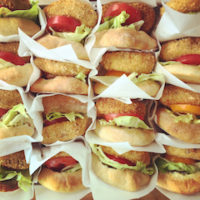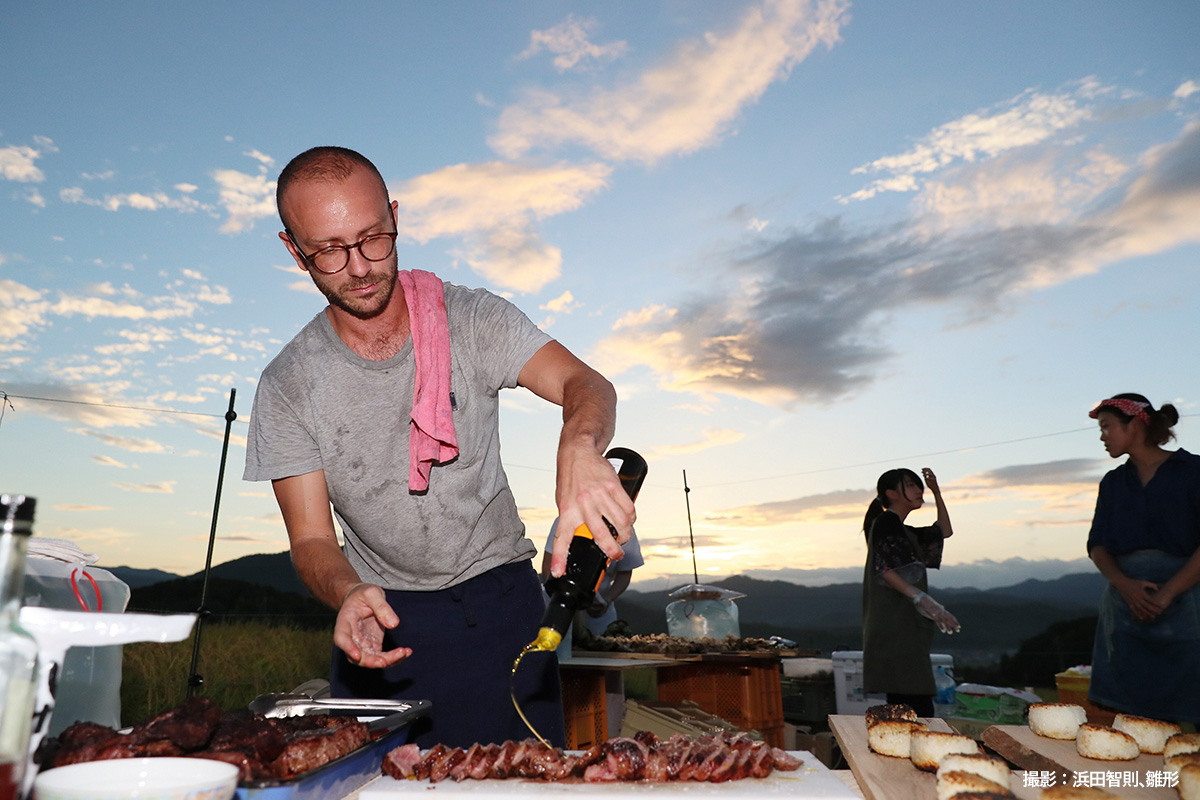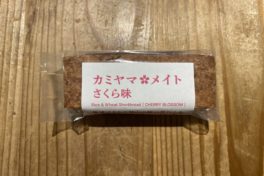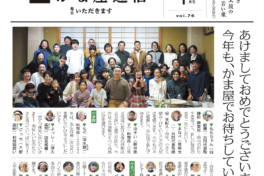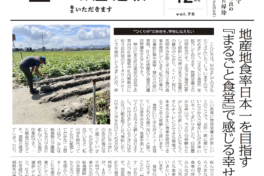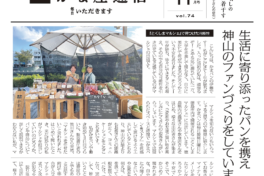2019年2月1日(金)
デイブの神山滞在記~全文~
Dave’s Memoir in Kamiyama
昨年3月からChef in Residence(CIR) プログラムで神山に滞在中のデイブ。神山に来て1年弱、デイブが神山に来るまで・そして来てからの自分自身の変化・日々感じていることについて振り返ってくれました。
彼をご存知の方もいると思いますが、改めて彼のプロフィールをご紹介。

ニューヨーク・ホワイトプレーンズ生まれ。19歳から地元の食堂で料理を始める。料理学校Napa Valley Cooking School(カリフォルニア)で9ヶ月のプログラムを修了後、Gramercy Tavern(ニューヨーク)にてキャリアをスタート。すぐ後、料理の基本的で純粋な側面により迫りたいと、Marlow and Sons(ブルックリン)にて働く。ここで地域の生産者を見つけ・支えることの重要性を感じるように。共同料理長であった期間も含め4年後には、Andrew TarlowとRomans(ブルックリン)を開く。8年に渡り、季節の野菜や持続可能な方法で飼育された肉などを仕入れ、そこから着想を得たイタリア料理提供した。こうした中で、イタリア北東部の農家や生産者との繋がりを深めていった。
Born in White Plains, NY, he began cooking in local kitchens at the age of 19. Upon completion of a 9 month culinary program at the Napa Valley Cooking School in California, he took his first job in New York City at the Gramercy Tavern. Soon afterwards, in hopes to get closer to the more fundamental and pure aspects of the craft he took a job at Marlow and Sons, in Brooklyn. It was here that he began to learn the importance of seeking and supporting local communities of producers. After four years, including time spent as co-chef of Marlow and Sons and Diner, he opened Romans with Andrew Tarlow. There he spent eight years cooking Italian food inspired and informed by seasonal produce and sustainably raised meats. Along the way continuing to foster strong bonds with farmers and producers throughout the northeast and Italy.
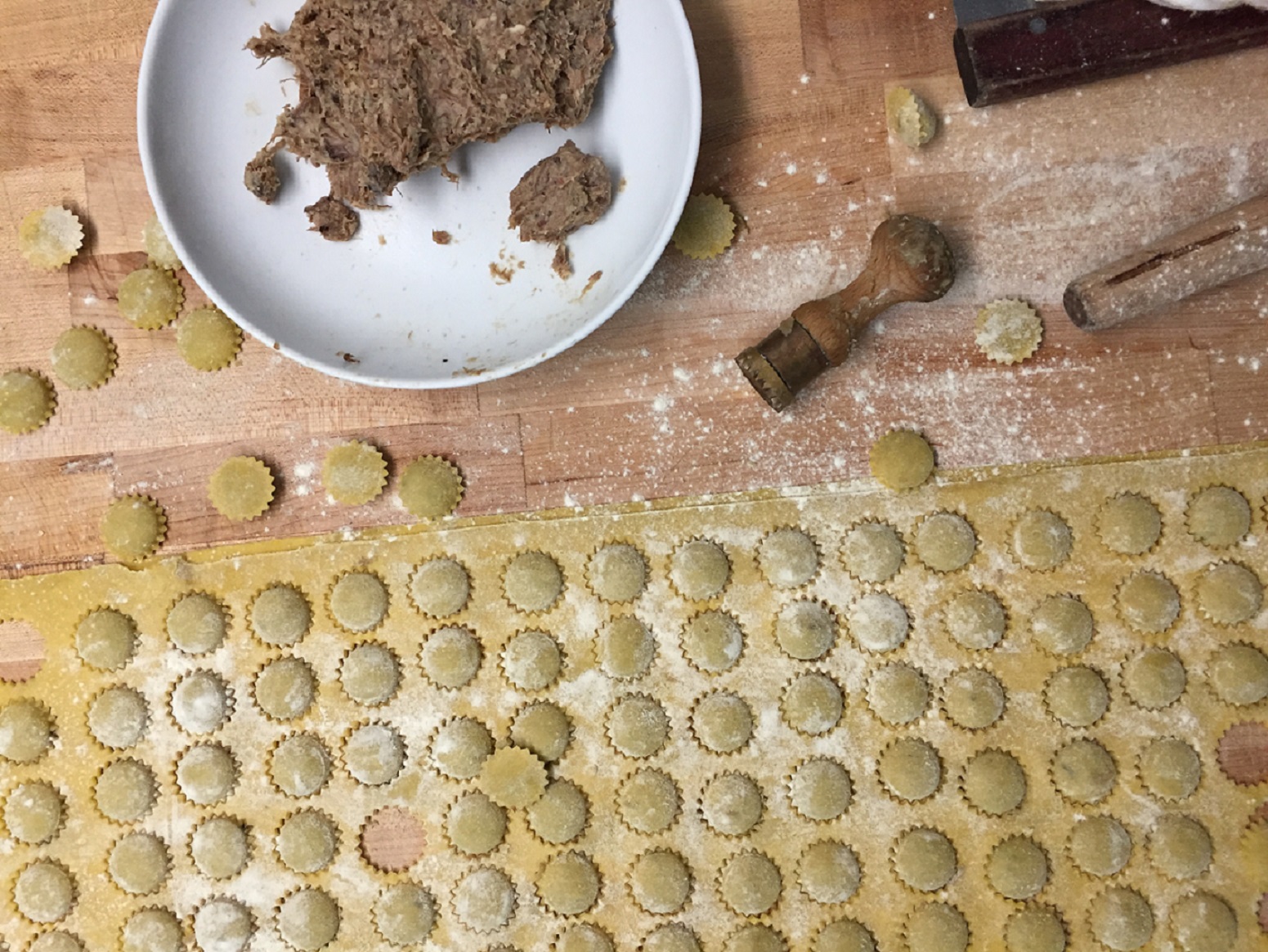
約14年に渡り、主にイタリア料理を極めてきたデイブ。彼は神山に来て、一体何を見、感じてきたのでしょう。2月のかま屋通信では、一部しかご紹介できなかった彼自身が紡いだ言葉。どうぞじっくりお楽しみください!
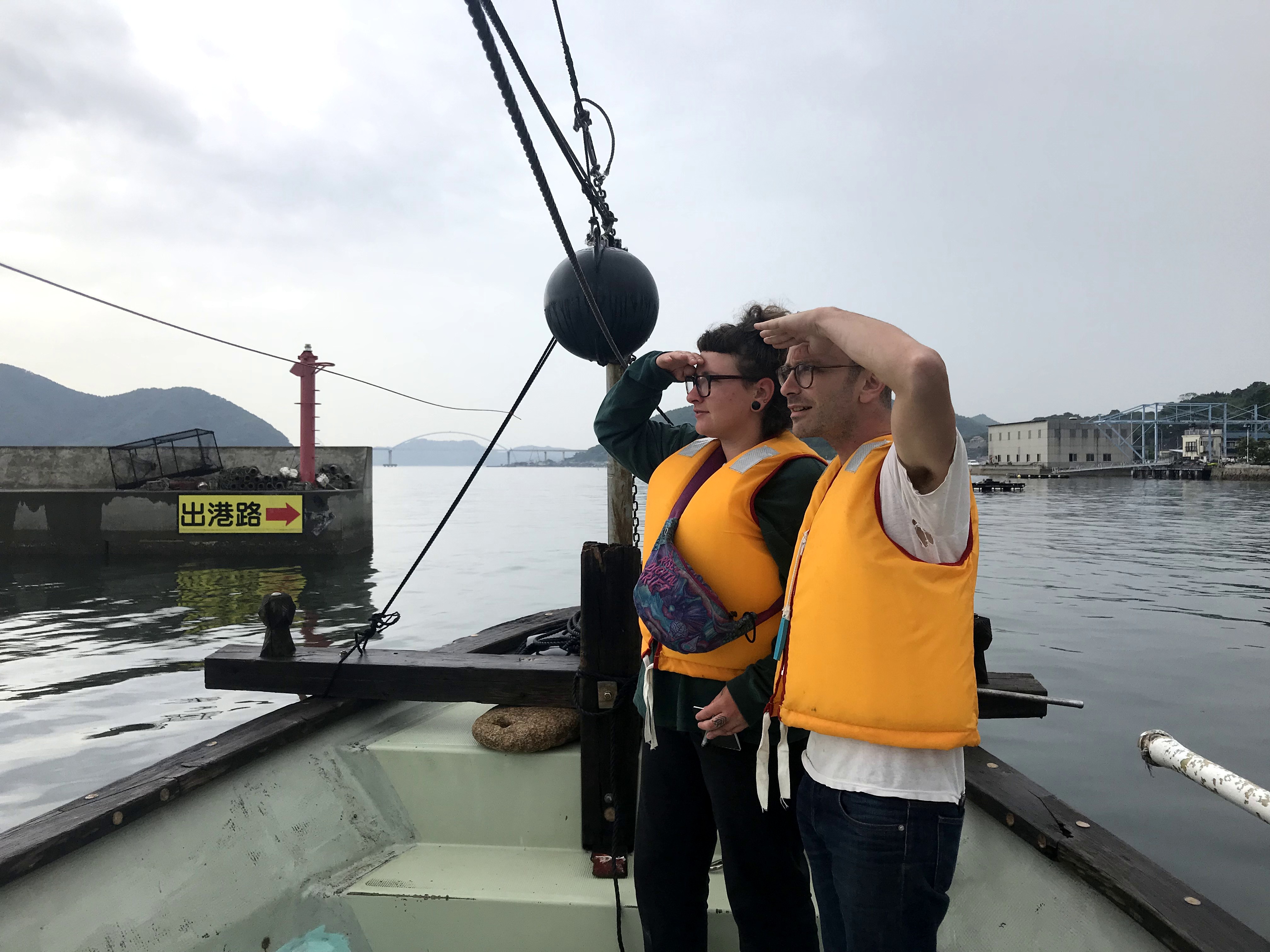
オーケー、日本に着いた初日を思い出してみようと思います。
2018年2月中旬、人生で一番長いフライトを経て、緊張気味に東京駅にたどり着き、近くの通りに出ました。まるで迷路のようで、道に迷ったことを覚えています。そして、気分が上がったり沈んだりしながら、小さくてひどく寒いAirbnbに到着。まずは気持ちを落ち着かせ、ストレッチ。その後6時間は、家主が用意してくれていたリネンに埋もれて、意識が半分ないような状態で過ごしました。
そして次の旅程へ。徳島空港までのフライトは、短かったけれど、悪夢じゃないかというくらい揺れて酷いものだったのでした。その後、この東京-徳島間のフライトはいつ乗っても同じくらい“危険”だということを知るのですが…ひょっとすると、日本人は着陸にあまり頓着しないのかな…。
この時に抱いた気持ちは、その後自分が日本人や日本文化を理解していく上で、もっと深い意味を持つことになります。
O.K. If I try, I can remember the first day I arrived in Japan. It was mid February 2018. After the longest flight of my life I nervously navigated my way through Tokyo station and out onto its neighboring streets. I remember losing my way in the labyrinth. And the sinking feeling upon arriving in my tiny and frigid Air BnB. I collected myself, stretched and spent the next 6 hours in a half-conscious state buried under every piece of linen my host had provided. In this same state I proceeded onto the second leg of my journey, a short yet nightmarishly turbulent flight to Tokushima airport. As it turns out every subsequent flight I have taken in between these two ports has been equally treacherous. Perhaps the Japanese are a bit more cavalier in regards to their landing approach? This feeling would come to take on a much deeper meaning to me as I began to understand the Japanese people and culture.
徳島に到着し、支配人の太一(真鍋)と先に“シェフ・インレジデンス”プログラムに加わっていた、ダニーが挨拶をしてくれましたが、間違いなくぎこちない雰囲気が流れていました。でもそれは自分自身の性格によるところと、ひょっとすると時差ボケの影響もあったかもしれません。
神山までの道中、私たちは2ヵ所で寄り道。まずは上品な装飾が施されたコーヒーショップへ。ちなみに味は“オーケー(まぁまぁ)”でした。次に立ち寄ったのは、賑わっていたうどん屋さん。その時は新しい体験に興奮し、心から美味しいと思ってグルテンの“ひも”をすすっていたかもしれません。でも残念ながら、これ以降、度々食べることとなるうどんに、私は本当に辟易としてしまいました。誠実で熱狂的なうどん信者である日本の皆さん、ごめんなさい。でも代わりに、日本の古い喫茶店は本当に大好きになりました。
In Tokushima I was greeted by Taichi and Danny, the presiding chef of the program I was to embark on. It was undoubtedly an awkward time, mostly due to me being who I am, but also perhaps jet-lag? On our way out to Kamiyama we made two stops. The first was an elegantly adorned coffee shop which I thought was “okay,” and the second was a bustling Udon restaurant. I suppose the novelty of the experience was thrilling to me at the time and I probably slurped down every strand of gluten with gusto. But after this, and, regrettably, many many more udon experiences I would come to truly despise it. I apologize to the fiercely loyal fanatic / all of the Japanese people. On the other hand, I have come to truly love the old style Japanese coffee house.
いりこ出汁と深煎りコーヒーでお腹がいっぱいになると、私たちは再び太一の車に飛び乗りました。この日中車内に漂っていた、かすかに嫌な臭いに気づいたのはもしかするとこの時だったかもしれません。
徳島市内のグレー/カーキの薄もやを進んでいくと、次第に澄み切った青空と山々が見えてきました。この道中で、空気が本当に変わっていくのを味わいました。一般的に、都市から田舎へ移動した際には顕著な変化かのかもしれませんが。この日の神山までの道中が私を深く癒してくれました。
So, with a belly full of iriko-laced dashi and dark-roasted brew we hopped back into Taichi’s car. Perhaps it was at this moment that I detected the slightly putrid aroma that prevails to this day in it’s cabin. As we drove the gray / khaki haze of Tokushima city gave away to clear, blue mountain skies. One can really experience the shifting air quality on this voyage and I suppose, in general, the striking transition from city to country. To this day I feel deeply comforted by the approach to Kamiyama.
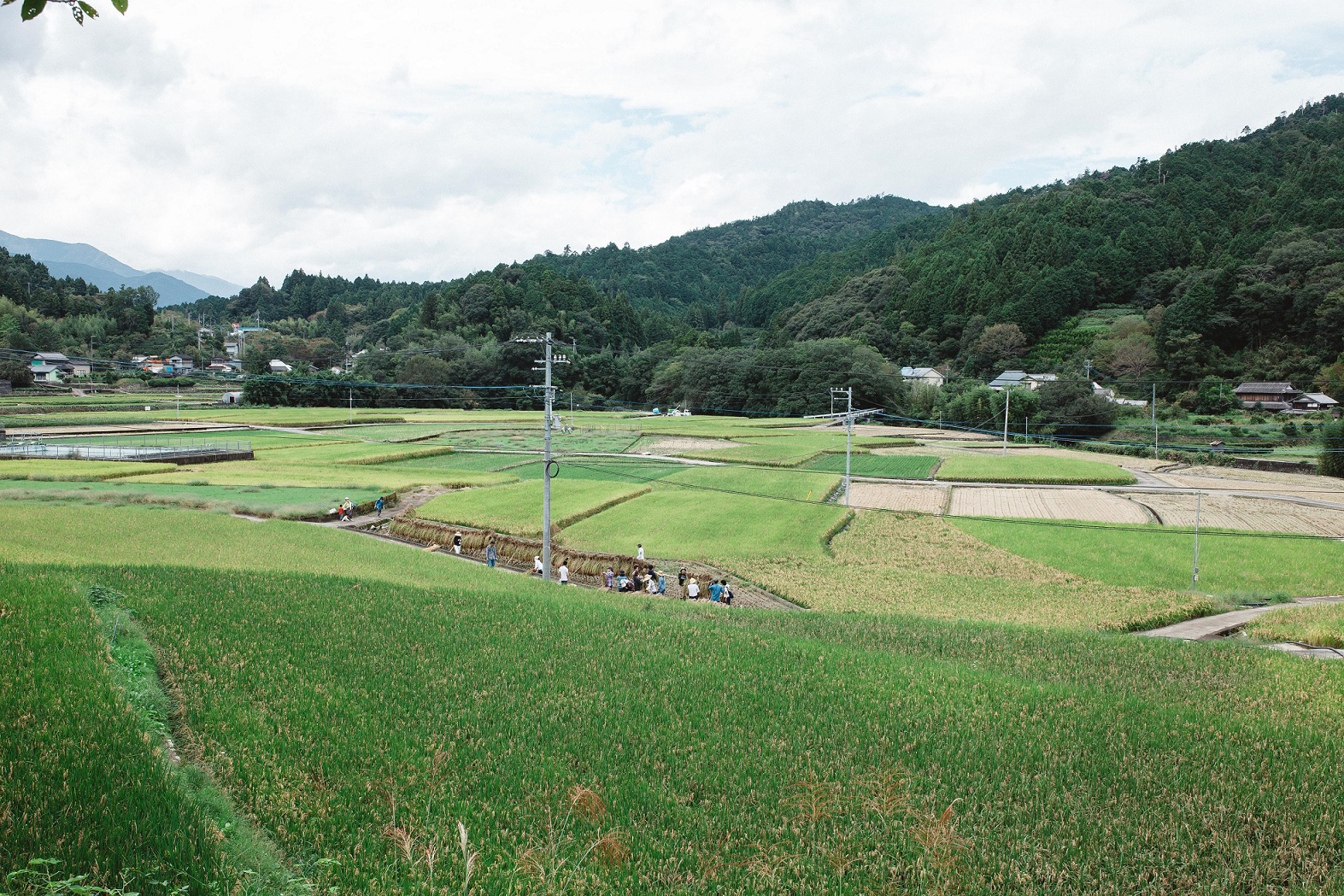
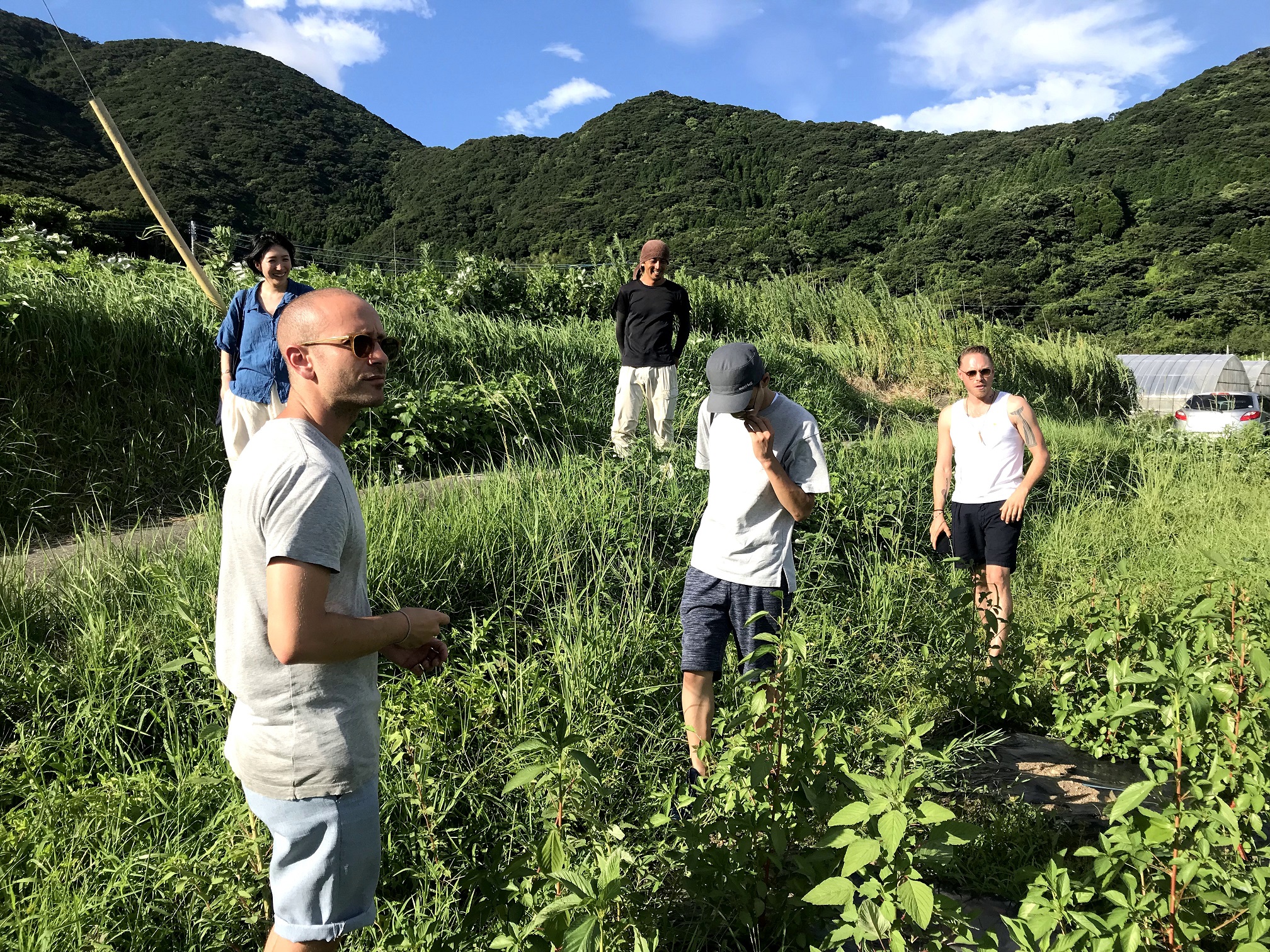
ここで簡単に言っておくべきだと思うのは、私が日本に一人でやって来て何をするかは自分でもあまり明確ではなかったということです。
ニューヨークで約14年に渡りプロとして料理し、その多くの時間を総料理長として過ごす中で、迷いや悩みが徐々に深くなっていきました。目的や気づき、極端に言えば息をしていることにさえ感謝できるような気持ちというのが次第に分からなくなってしまったのです。
そうなるまでの過程を説明しようと思うと、振り返りに何ページも必要になりますが、とにかくそんな状態でした。そして、今言えることは、その14年間の道のりをもう一度繰り返したいとは思わない、ということです。
I should say, briefly, that I was not at all clear as to what I was doing in my own skin, let alone Japan. After about 14 years of cooking professionally in NYC, many of those spent as an executive chef, I was disenfranchised. Somewhere along the way I lost track of things like purpose, awareness, and perhaps gratitude at the very act of breathing. To explain my path to this condition would require countless pages of reflection, but there I was. And all I can say is that I would not take back any one the moments along the way.
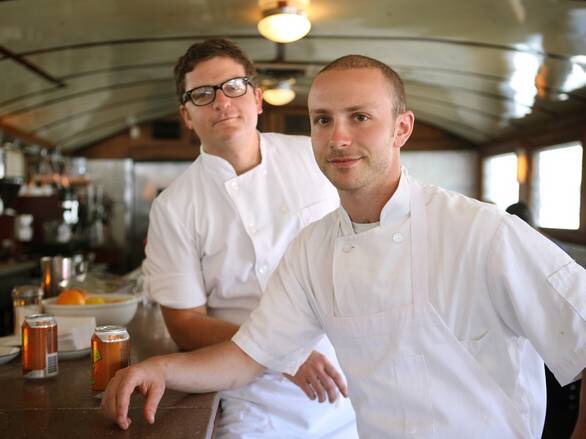
そういうわけで、私は包丁の入ったバッグと、ニューヨークの”高くてオシャレ”な服を詰め込んだスーツケースだけを手に、神山に辿り着きました。ちなみに持ってきた服は結局、どれも温かくなく、役立たずだったのですが…。神山は寒いって書きましたっけ?本当に、寒いんです。このあと待ち受ける長くて凍えそうな夜に怯えつつ、今この一年の回顧録を書いています。この後、しばらくして吐く息が白くなってきたら、すぐ湯たんぽを用意して、自分の布団ライフを快適にしてくれるそれをぎゅっと抱えるでしょう。どうか今日は安らかに眠れますように。深夜、下の階にあるトイレへ行くのは、まるで極地探索に出掛けるような寒さなので…。
(話を戻すと)神山についた時は、疲れ切っていてとても緊張していました。では、そろそろ、フードハブ・プロジェクトでのシェフ・イン・レジデンスについて書きたいと思います。
So then I was in Kamiyama, with a knife bag and a suitcase full of fancy NYC clothes, none of which, I would come to find, were warm enough. Have I mentioned that Kamiyama is cold? I mean, really cold. As I sit and write this memoir almost one year in I cringe at the thought of the long freezing night ahead. Soon I will fill my hot water coozy and grip it for dear life on my futon as I watch my breath dissipate into the air. I will pray for a quick and undisturbed sleep, as a mid evening journey downstairs to the bathroom would be like a polar expedition. I was exhausted and naturally extremely nervous. And so would begin my post as Chef in Residence of Food Hub Project.
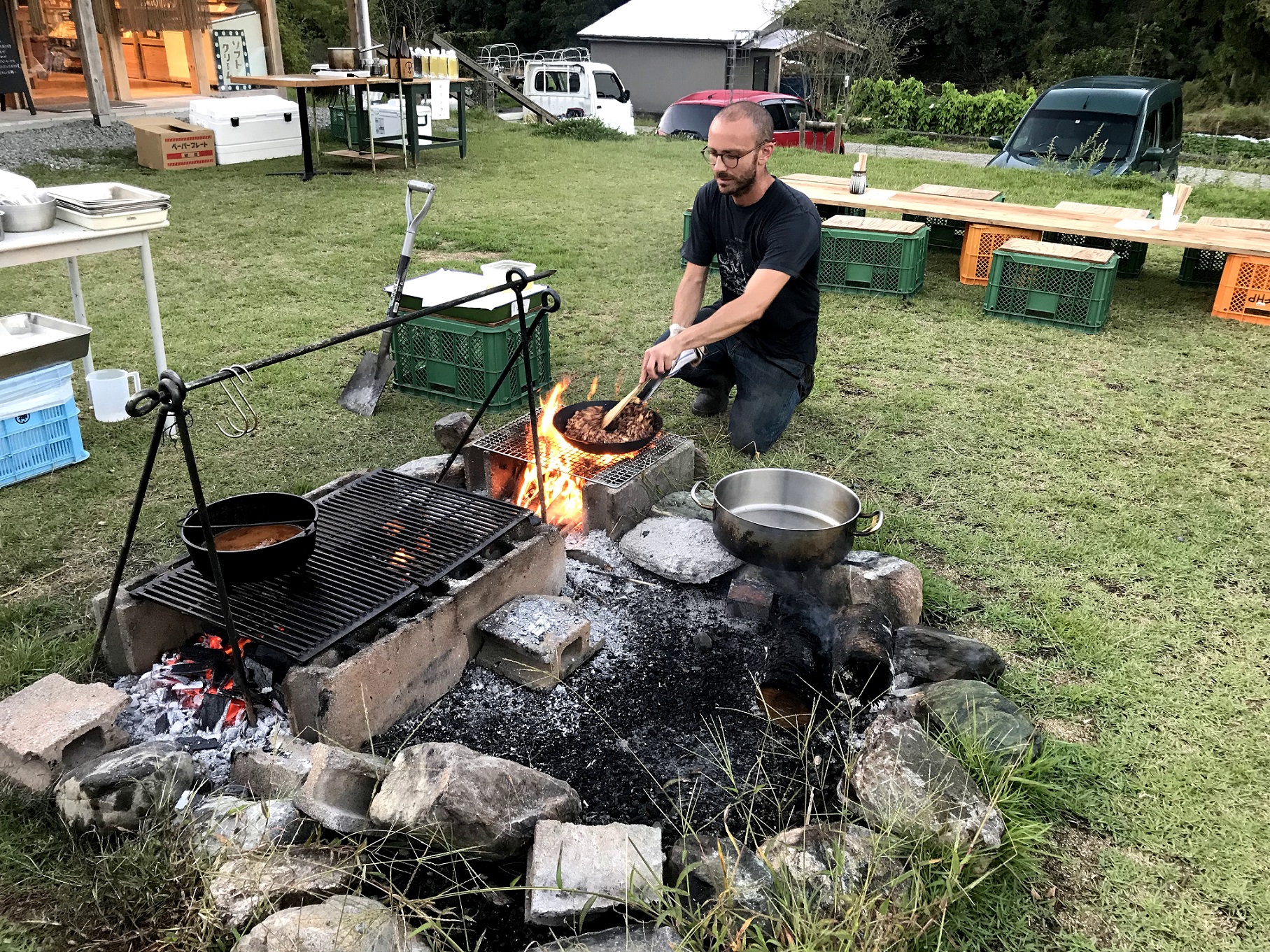
神山に来てしばらくの間は、メンバーの名前や生活に欠かせない基本的な日本語を覚えることに時間を費やしました。中でも「いただきます」と「ごちそうさま」は重点的に。お茶碗にお米を一粒でも残しては行儀が悪いと知ってからは、“箸使い”にかなり自信が持てるようになりました。
そしてまもなく、もし何か上手くいかないことがあった時は、全ては自分の身から出た錆だろう、と思うようになりました。なぜこんなことを言うのかというと、フードハブのメンバーは、いつも私を支え、受け入れ、尊重してくれるからです。ニューヨークでは、常に“競争”や“評価”に晒されていたので、こんなに温かい人たちがいるということが、なんだか信じられませんでした。そのため、私にとっての一番の挑戦は、自分自身の態度を根本から見直す、ということでした。
In the days to come I would spend much of my time trying to remember the names of my colleagues and the most basic and critical Japanese words. Particularly the pre and post meal blessings. And I felt pretty confident with chopsticks until I realized that it was impolite to leave a single grain of rice in my bowl. I quickly understood that if I was going to have any problems they would stem from my inner psychosis. I say this because the FHP members showed me nothing but support, acceptance and admiration. I suppose coming from an NYC headspace of constant competition and “measuring up” I could not imagine the existence of such a warm people. And so I’ve found that the biggest challenge I’ve had to face is the re-programming of my own behavior.
それは自分自身のそれまでの物の見方に挑むというだけでなく、受け入れたり寛容になるための心の余裕をもつということでした。
それまでとても過酷な環境で仕事をしてきてましたが、そんな中でも私には色々なことをコントロールする余地がありました。常にその仕事の隅々まで把握していたし、どんなミスや予期せぬ急なトラブルが起こり得るかもある程度把握していました。
そのため最初は、かま屋を離れて自分が料理することにはとても抵抗がありました。どんな材料があるのか、どんな場所で調理するのか、誰が自分のサポートをしてくれるのか等、イベント直前にならないと分からなかったからです。
しかし次第に、いつも最終的にはどうにかかなるものなんだ、と学んでいきました。なんだかんだで飛行機がちゃんと着陸するのと同じように。そして周りの仲間たちが笑顔なのだから、自分がそうしない理由なんてあるでしょうか?私が神山で目にした、人々の暮らしや仕事に対する忍耐力には本当にいつも驚きと刺激をもらいます。
That is not to say that the process was always of changing my viewpoint, but also of finding a great deal of space for acceptance and tolerance. I came from a fiercely challenging work background, but within that I had a great deal of control. I was always aware of the depth of the task at hand and the potential for all manner of fowl-ups and unexpected calamities. So at first I found it virtually unacceptable to go into an off-site cooking event with very little if only last minute knowledge of what ingredients and space I had and who would be assisting me. Over time I came to learn that things would always work out. The plane would land. And everyone around me would be smiling, so why shouldn’t I? I have witnessed a perseverance in the approach to life and work here that has been truly inspiring.

ここにいる間、うだるような暑さの中で230人分の料理を火を熾して作ったこともあれば、陶芸家の小野哲平さんにアンチョビのトマトスパゲッティを作ったこともありました。そういうことこそ私は大好きでした。タバコはやめたり、また吸い出したり。家のキッチンを行ったり来たりしながら、自分自身についての独り言を言ったりもします。
でも何より、心から喜びを感じられるのは、食やコミュニティについて再発見をしたり、その繋がりに触れる機会を持てることです。
In my time here I have cooked for a group of 230 over wood fire in sweltering heat. I’ve cooked spaghetti con pomodoro e alici for Teppei Ono. I’ve fallen in love. I’ve quit smoking and started again and quit again. I’ve paced around my kitchen talking to myself about myself. But at the moment what I really feel most grateful for is having the opportunity to re-discover food and community and their critical interplay.
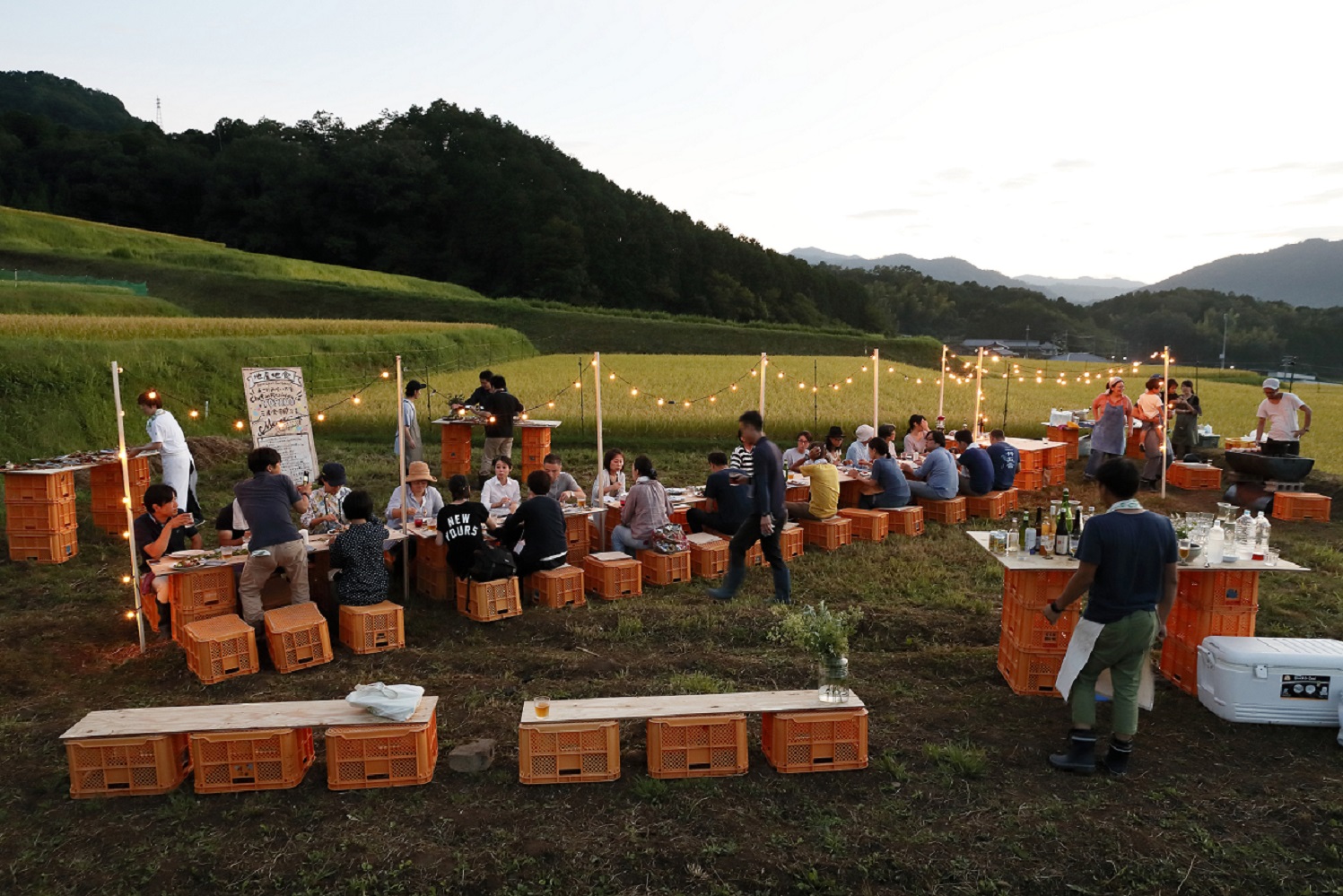
撮影:浜田智則、雛形
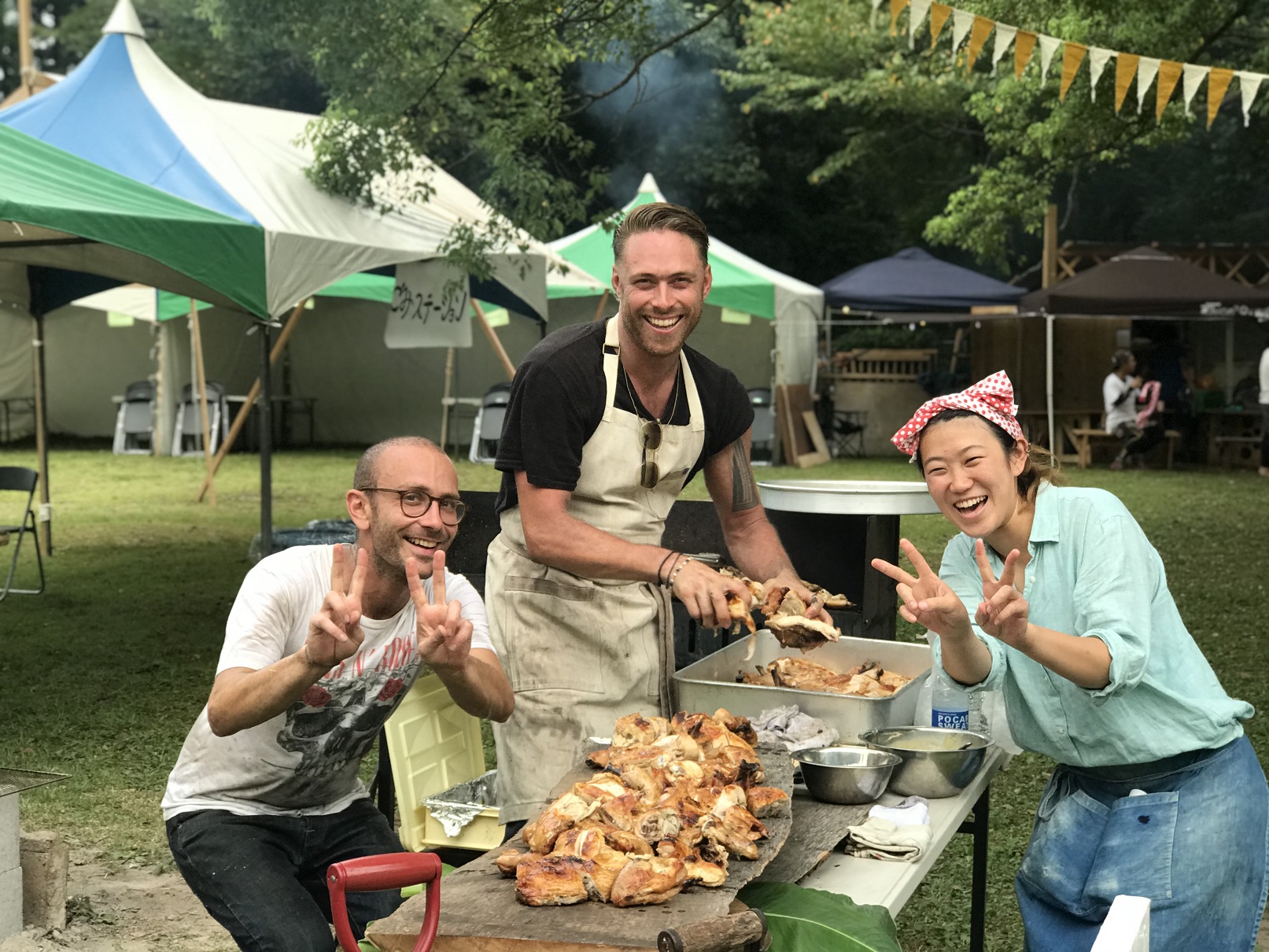
自分がなぜ食そのものや料理すること、食べることをそんなに好きなのか、それまで私は忘れてしまっていました。ニューヨークという、絶え間なくモノを消費し捨てている都市で、生み出し続けるという行為は、本当に心を荒ませていきます。少なくとも私自身はすり減りました。
だからここへきて、小さな子が私の作った“ゆずのマスカルポーネアイス”を食べて、表情が変わっていく様子を見られるのは、本当にスペシャルな瞬間です。弾力のあるイノシシ肉の鍋を友人たちと食べる、というのも同様に特別な体験でした。ビールはより冷たく、お茶はより温かく感じられます。食事をしたり食べ物をシェアする機会はいつでも本当に素晴らしく、かけがえのないことです。そう感じるようになったのは、まさにここ神山でともに暮らし、働く人達がそういう心を持った人たちだからに他なりません。当たり前のことなどなく、共に料理をしたり食べたりする時はいつでも「お祝い」しているようなのです。
長い間、私は料理や食べるという行為を“評価”という観点だけで捉えてきました。ですが、今は“思いやり”と”感謝”とともにあるものとして捉えています。
I had forgotten why I loved food and cooking and eating. The grind of creating and executing and managing in a city that consumes and discards relentlessly can really strip one’s spirit. Or at least it stripped mine. So all of a sudden the act of handing a small child a cup of handmade yuzu mascarpone ice cream and watching her expression change as she tastes it feels very special. Sharing a meal of chewy wild boar soup over a hot plate amongst friends is a revelation. Beer tastes colder, and tea hotter. Every chance to eat and share food rewards infinitely. It feels precious. I can only attribute this to the spirit and nature of the people I’ve had the chance to live and work with here in Kamiyama. Nothing is taken for granted and it seems every chance to cook and eat together is a celebration. For a long time I approached cooking and eating only with judgement, and now it is with warmth and appreciation.
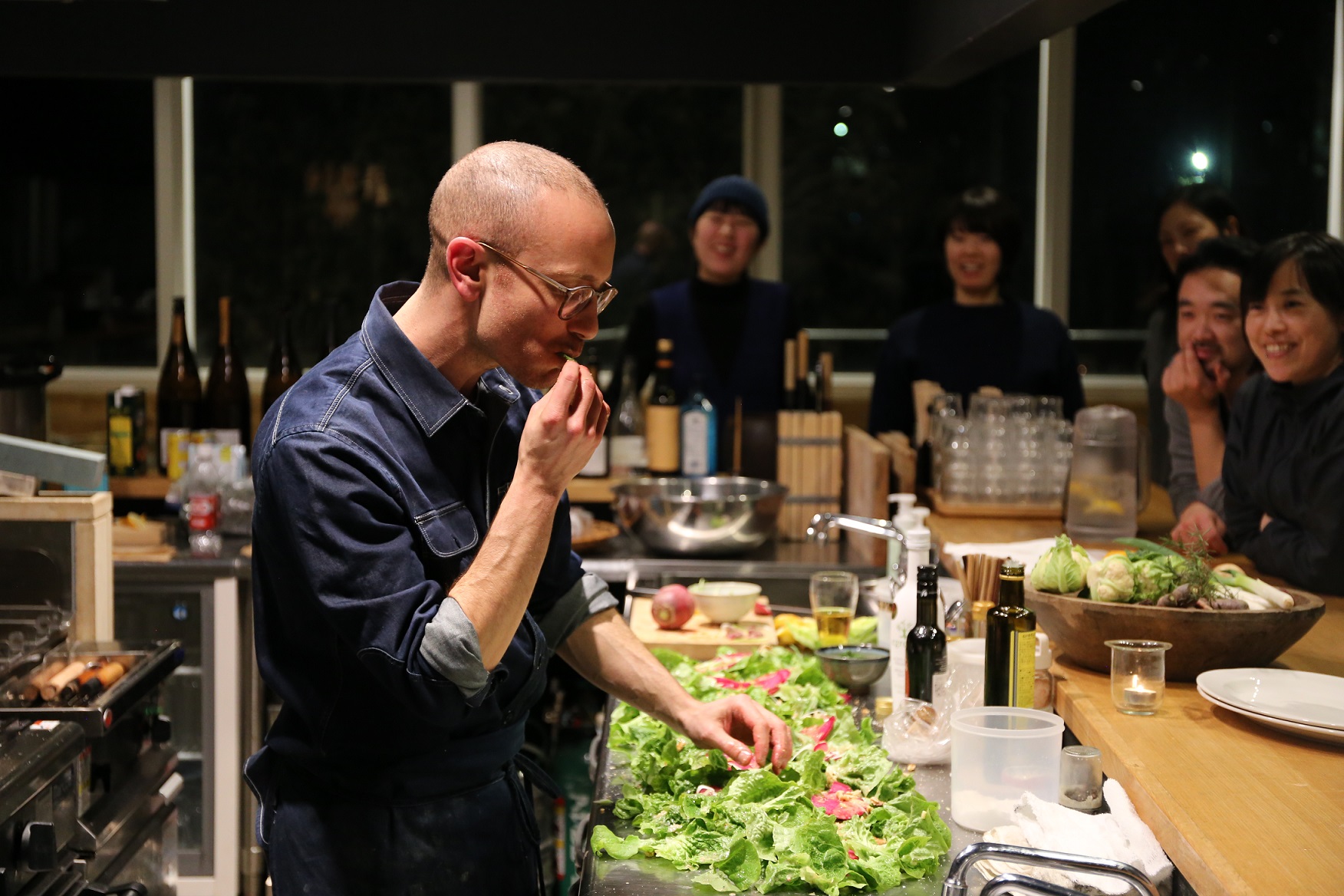
時々こういった経験をしているのは自分だけなんじゃないか、と感じることがあります。フードハブのみんなは、私と同じように感じているのか?と。
人のために食べ物を生み出すことは、大きな犠牲をともなうことだとこれまで思ってきました。食べ物を育てたり、加工したり、提供したりすることを生業として選んだ人は、紛れもなく、自分の人生を費やしているといえます。決して止まることのない仕事をしながらも、情熱や誠実さ、決意を保ち続けるために自分で自分を丁寧に整える必要があるのです。私は食業界において、競争のようなものがあることは理解しています。特に、次の新しいものこそが良しとされるニューヨークでは。そしてこのフードハブ・プロジェクトでも何かを生み出していくという似たようなプレッシャーを私は感じます。
しかし本当に大切にされるべきことは、本物の食文化を残し、繋いでいくことだと私は考えています。そして、これこそがフードハブ・プロジェクトの使命だと感じています。だからこそ、関わる人たちは、自分たちが正しい道を歩んでいることに安心して、いつでも全力を尽くすべきだと思っています。私はその一員としていられることを、とても嬉しく思います。
I sometimes wonder if I am alone in this experience here. If my family at Food Hub Project have this sense that I have. I have always believed that it takes great sacrifice to produce food for people. Those of us who have chosen to grow food, preserve food, and share food have undoubtedly chosen a life-consuming task. It certainly requires delicate handling to maintain passion, integrity and determination when the work never stops. I understand the race for relevance in food. Especially in NYC, where you’re only as good as the next new thing. And I feel a pressure here in Kamiyama(Food Hub Project) to strive for that same relevance. Yet I think the most relevant initiative is the preservation of real, natural food culture. To my mind, this is the task of Food Hub Project, and thusly those involved should rest assured that they are on the right path and always doing the best work. I feel grateful to be part of it.
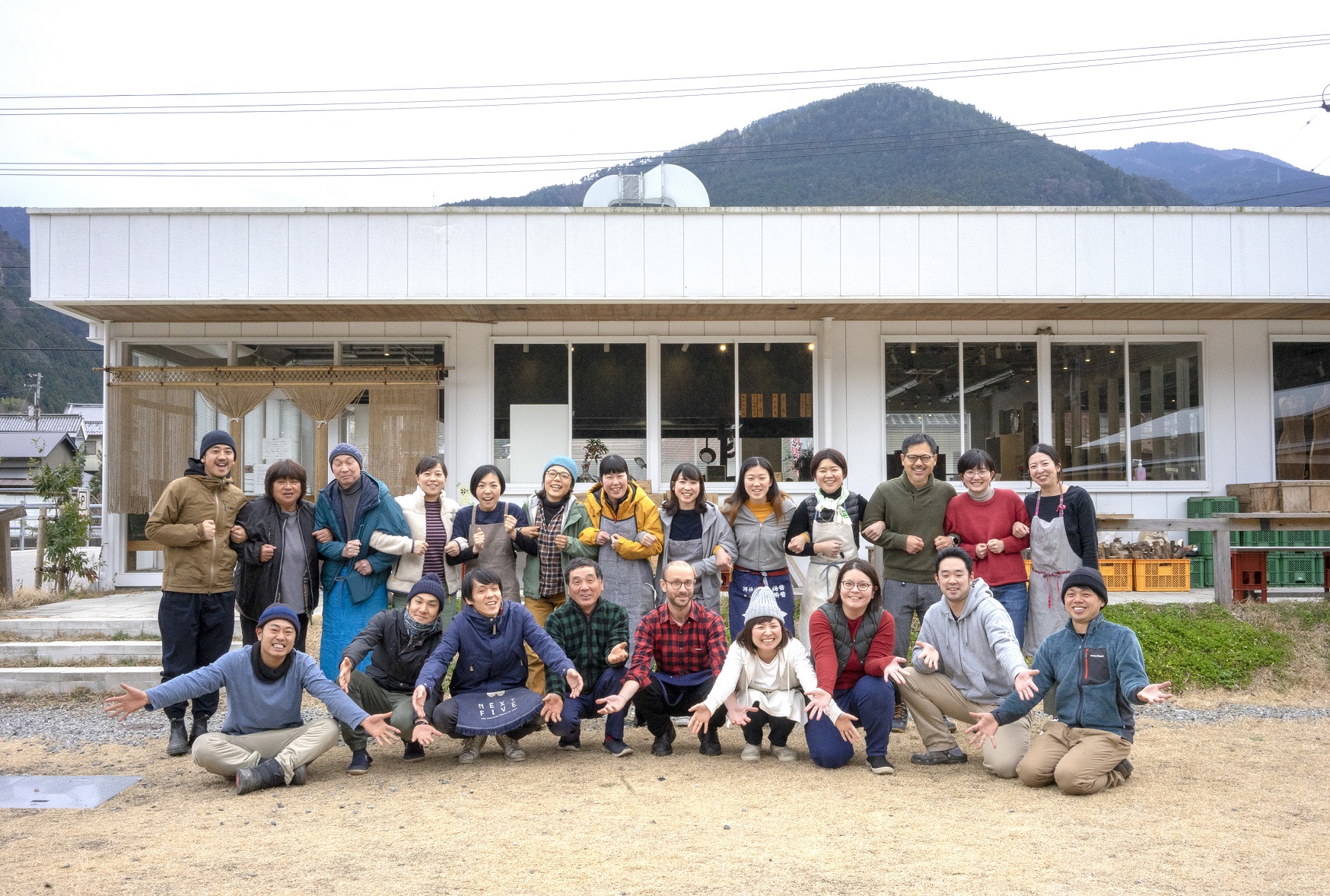
(English by David Gould, 翻訳:種本)

